Fairfield strives to support its students and create an inclusive environment for all through a host of academic resources, including academic advisors, a career planning center, academic centers, and a library full of experts ready to assist. In addition to these resources, students can find support through the Academic Commons centrally located within the DiMenna-Nyselius Library.
Academic Support
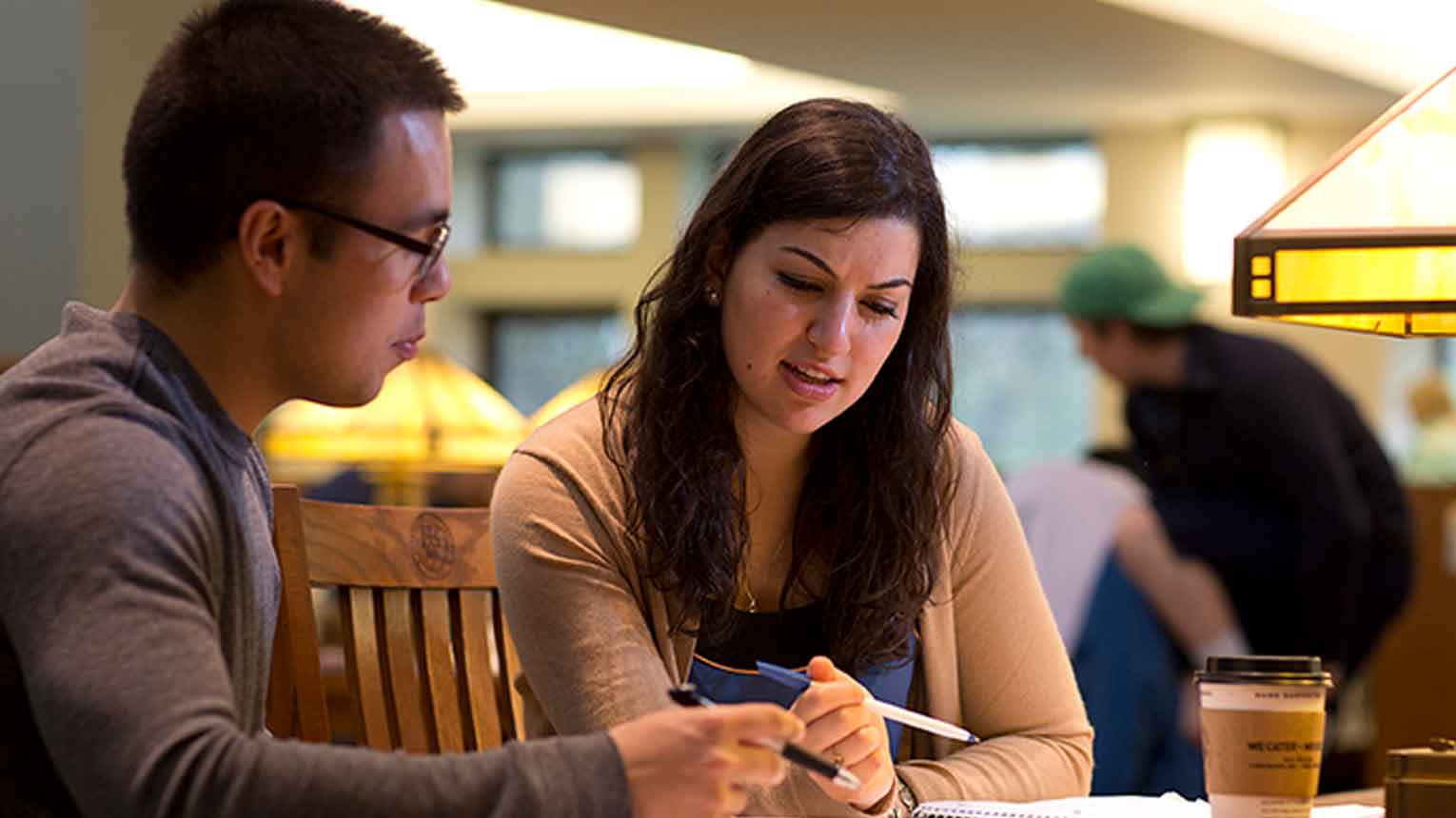
Students working in the DiMenna-Nyselius library.
Services
-
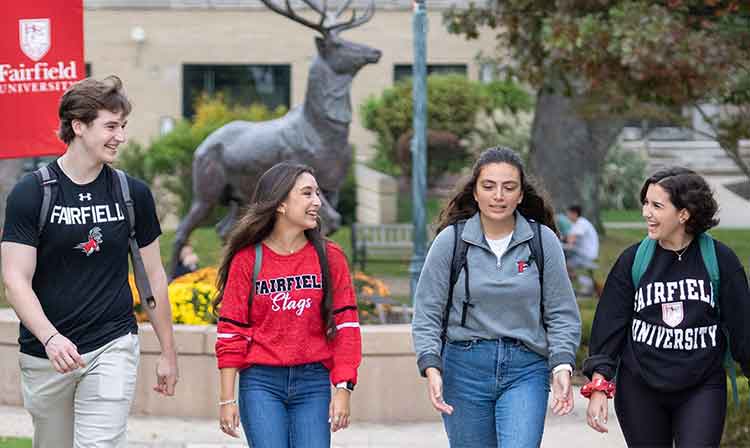
Registrar
The Office of the Registrar coordinates the academic records, student registrations, and classroom scheduling functions for the University's five schools.
-
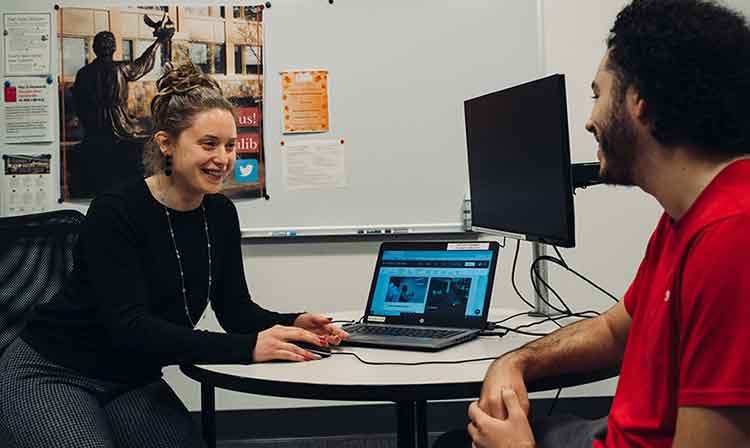
Advising
Fairfield students can take advantage of one-on-one advising with faculty. Learn more here.
-
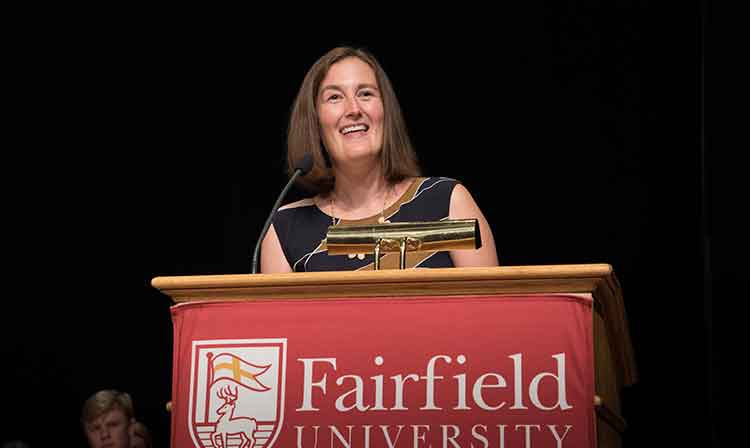
Honor Societies
Learn the ways Fairfield recognizes its students' academic success.
Explore tools, research, and learning
The DiMenna-Nyselius Library
The DiMenna-Nyselius Library offers research materials that include books and eBooks, articles, physical and streaming media, student donated textbook collection, course reserves, and the University Archives & Special Collections. Research services include one-on-one research consultations with a librarian (in-person or online), 24/7 help via chat, online research guides, citation guides, and tutorials.
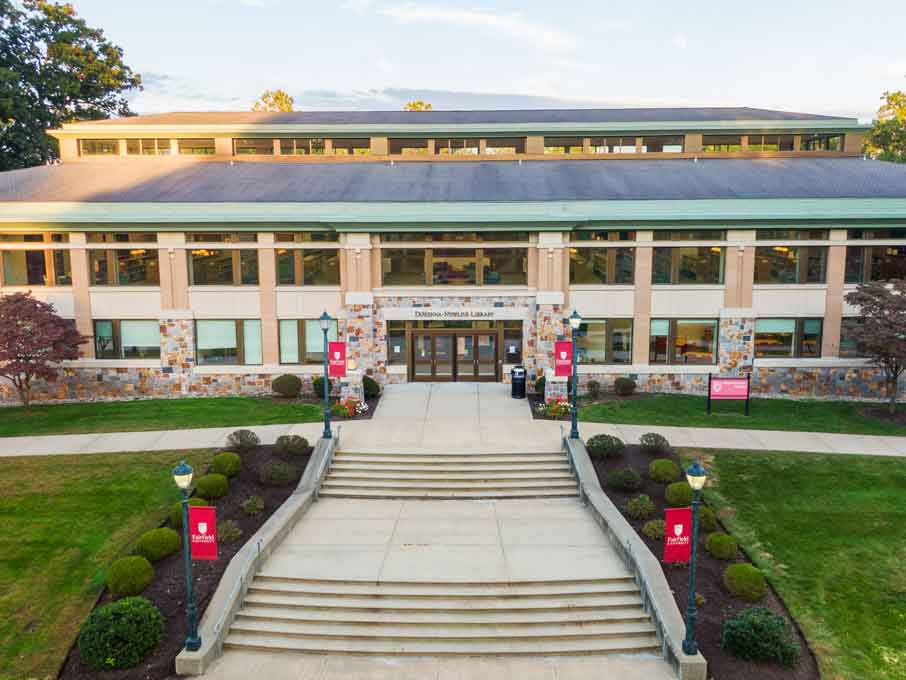
Resources for Students, Faculty, and Staff
Librarians also provide study skills support through tutorials, workshops, and consultations. Students, faculty, and staff can use Interlibrary Loan to borrow materials from other libraries.
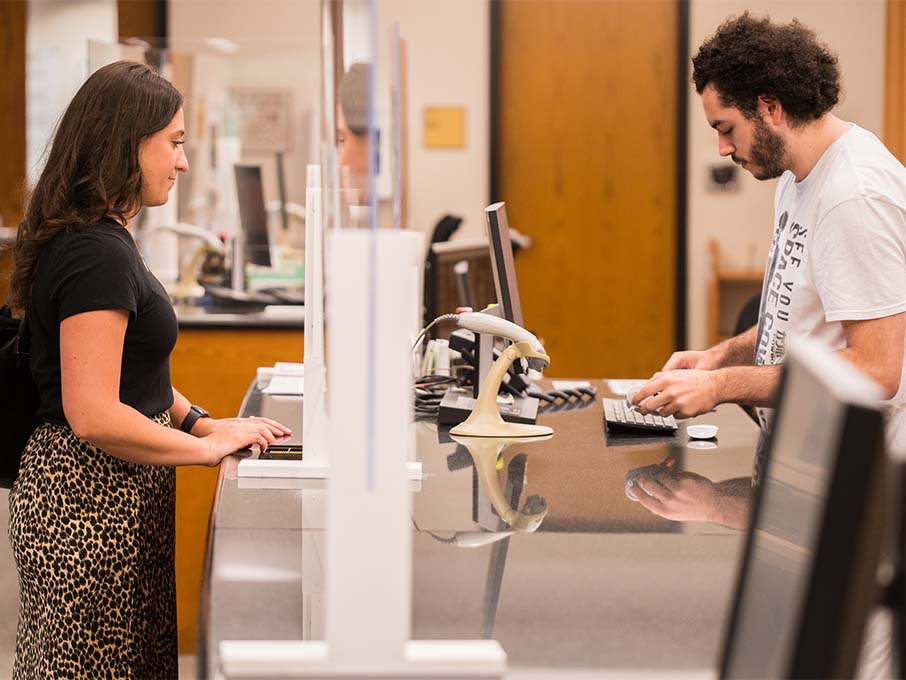
Academic Commons
The Fairfield University Academic Commons supports the scholarly success and intellectual growth of our students. Academic Commons partners are dedicated to:
- Coordinating academic resources
- Helping students achieve their educational goals
- Creating an inclusive environment for students
- Eliminating barriers to student success
- Strengthening students’ academic experience, in and out of the classroom
-
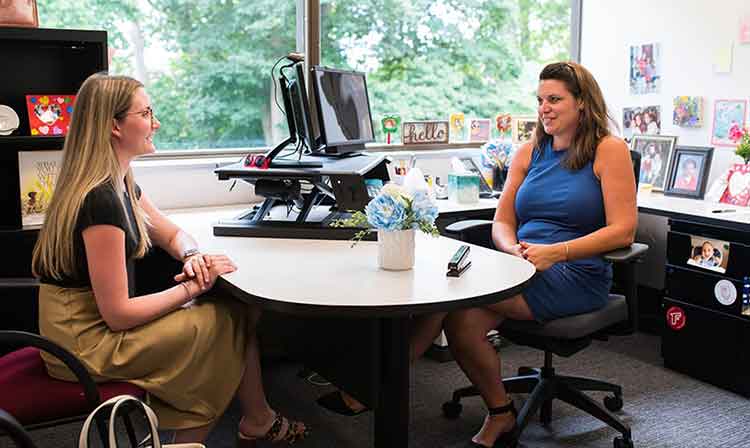
Accessibility
Following state and federal law, Fairfield University is committed to providing accommodations to students with disabilities to ensure accessibility and equal access to its programs, services, and activities.
-
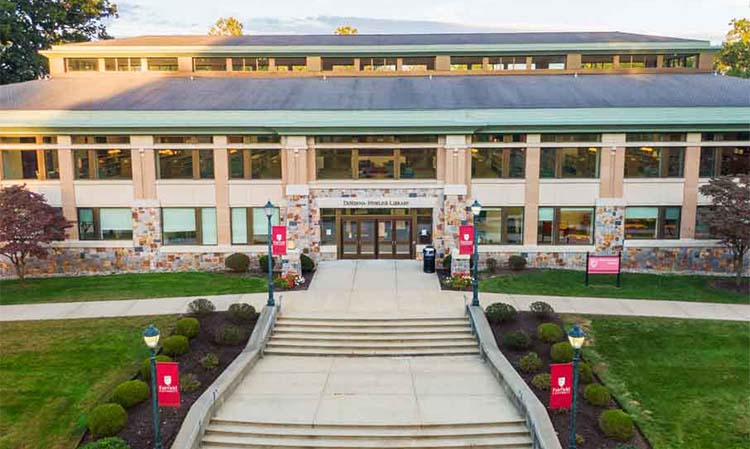
DiMenna-Nyselius Library
Fairfield’s DiMenna-Nyselius Library is the hub of academic resources, home to research materials, librarians, study spaces, and more.
-
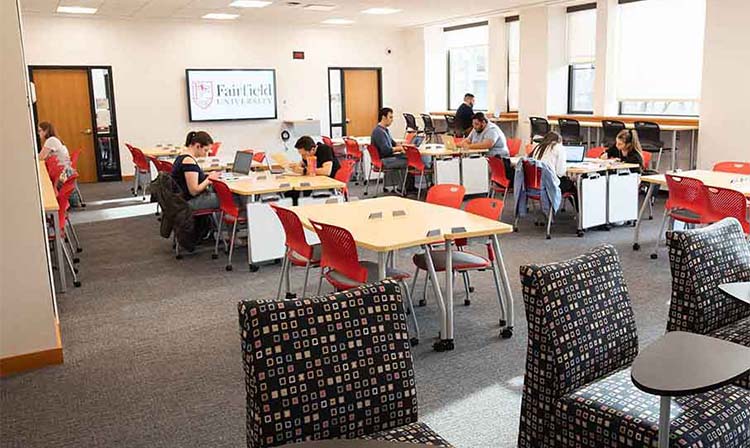
Fredrickson Innovation Lab
The Fredrickson Family Innovation Lab stands as a symbolic center for the College of Arts and Sciences, bridging its wide breadth of departments and academic programs and provides students and faculty with a physical and digital gathering space.
-
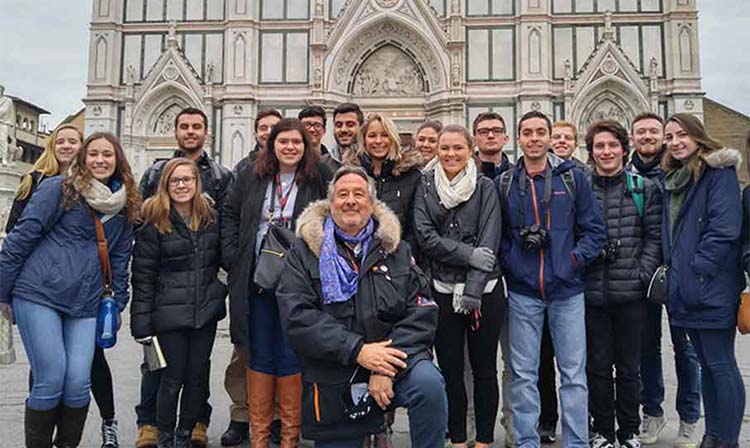
Global Fairfield
Fairfield encourages students to learn internationally through one of its many Global Fairfield or affiliated programs.
-
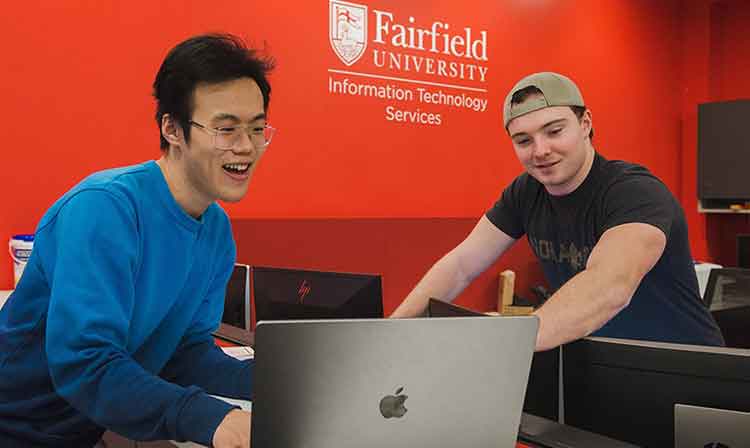
ITS Help Desk
The Department of Information Technology provides technology services and support to Fairfield University students, faculty, and staff.
-
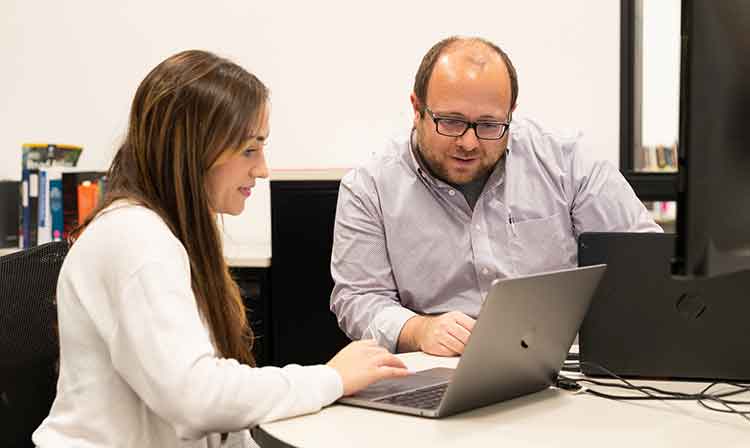
Writing Center
The Writing Center is a free resource available to all students. A trained peer tutor is available to work with all students at any point in the writing process.
-
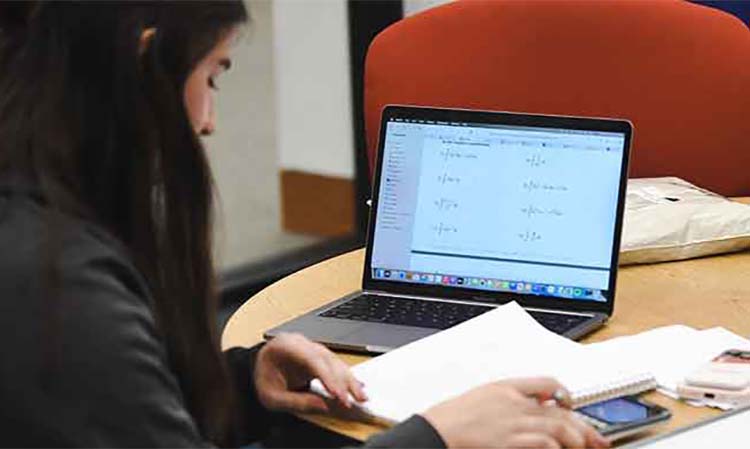
Math Center
The Math Center is a place where students can receive tutoring for first-year courses in precalculus, calculus, and statistics.
-
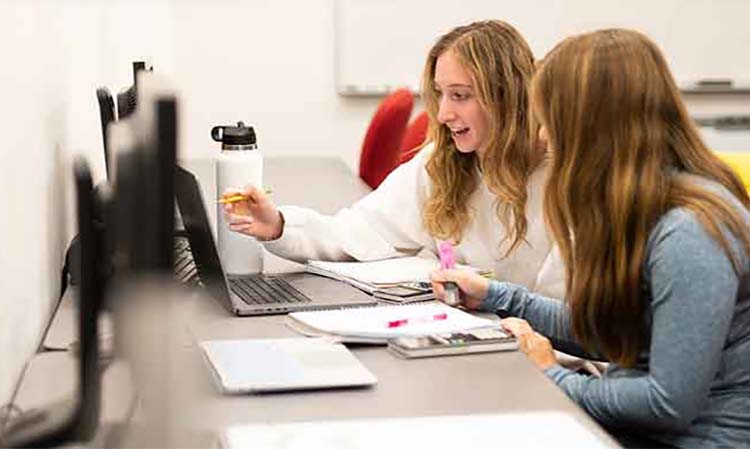
Science Center
The Science Center provides expanded peer-tutoring for all of the foundational courses in natural sciences.
Fairfield's Honor Code
Fairfield University's primary purpose is the pursuit of academic excellence. This is possible only in an atmosphere where discovery and communication of knowledge are marked by scrupulous, unqualified honesty. Therefore, it is expected that all students taking classes at the University adhere to the following Honor Code:
I understand that any violation of academic integrity wounds the entire community and undermines the trust upon which the discovery and communication of knowledge depends. Therefore, as a member of the Fairfield University community, I hereby pledge to uphold and maintain these standards of academic honesty and integrity."
Dishonest Conduct
In all academic work, students are expected to submit materials that are their own and are to include attribution for any ideas or language that are not their own.
Examples of dishonest conduct include, but are not limited to:
- Falsification of academic records or grades, including but not limited to any act of falsifying information on an official academic document, grade report, class registration document, or transcript.
- Cheating, such as copying examination answers or another student's paper.
- Collusion, such as working with another person or persons when independent work is prescribed.
- Inappropriate use of notes.
- Falsification or fabrication of an assigned project, data, results, or sources.
- Giving, receiving, offering, or soliciting information in examinations.
- Using previously prepared materials in examinations, tests, or quizzes.
- Destruction or alteration of another student's work.
- Submitting the same paper or report for assignments in more than one course without the prior written permission of each instructor.
- Appropriating information, ideas, or the language of other people or writers and submitting it as one's own to satisfy the requirements of a course - commonly known as plagiarism.
- Unauthorized recording, sale, or use of lectures and other instructional materials.
In the event of such dishonesty, professors are to award a grade of zero for the project, paper, or examination in question and may record an F for the course itself. When appropriate, expulsion may be recommended. A notation of the event is made in the student's file in the academic dean's office. The student will receive a copy.
Institutional Review Board (IRB)
Fairfield University maintains an Institutional Review Board to ensure the protection of the rights and welfare of human subjects involved in research conducted at Fairfield University or by its employees and/or students, according to federal regulations (45CFR Part 46 and 21CFR Part 56).
The IRB website will provide viewers with instructions on how to submit a proposal, as well as important information regarding ethical guidelines, federal regulations, and IRB procedures.
*NetID login required to access.
Institutional Animal Care and Use Committee
If you would like to submit a proposal to conduct animal research, please contact IACUC@fairfield.edu or Chris Hetherington for a protocol form.
If you have concerns about the welfare of the animals used for research at Fairfield, please contact IACUC@fairfield.edu or submit an anonymous letter to Dr. Jim Biardi, Biology Department, Fairfield University.
Dr. Jim Biardi, Biology, Chair
Dr. John Kristy, DVM, Attending Veterinarian
Dr. Ashley Byun, Biology
Dr. Shannon Gerry, Biology
Dr. Shannon Harding, Psychology
Dr. Carl Scheraga, Management
Molly King, Community Member, Alternate
Christopher Hetherington, IACUC Coordinator
Dennis Keenan, Philosophy, Alternate
Glenn Sauer, Biology, Associate Dean, Institutional Official
